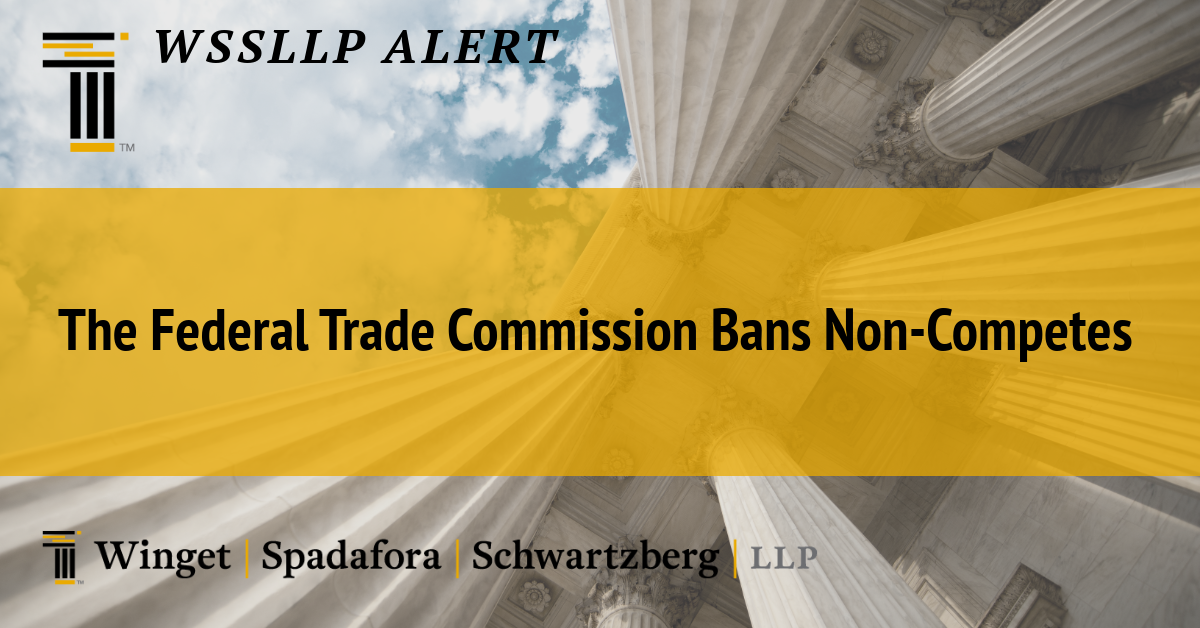Yesterday, the Federal Trade Commission (“FTC”) issued its final rule banning non-competes. The final rule will go into effect 120 days following publication in the Federal Register. The rule was originally proposed on January 19, 2023, pursuant to sections 5 and 6(g) of the FTC Act. The final rule states “that it is an unfair method of competition- and therefore a violation of section 5- for employers to, inter alia, enter into non-compete clauses with workers on or after the rule’s effective date.” Thus, following the effective date, there is ban on new non-competes for all workers.
The final rule defines non-compete clause as “a term or condition of employment that prohibits a worker from, penalizes a worker for, or functions to prevent a worker from (1) seeking or accepting work in the United States with a different person where such work would begin after the conclusion of the employment that includes the term or condition; or (2) operating a business in the United States after the conclusion of the employment that includes the term or condition.” The final rule states “‘term or condition of employment’ includes, but is not limited to, a contractual term or workplace policy, whether written or oral.”
In addition, non-competes entered into prior to the rule’s effective date will be unenforceable for the majority of workers. The only exception will be non-competes for senior executives which is defined as workers earning more than $154,164 per annum and in a “policy making position.” Employers are required to provide notice to workers (other than senior executives) with existing non-competes that the non-competes will not be enforced in the future. The FTC also included model language for employers to utilize in notifying workers of the new rule.
It should be noted that the final rule does not apply to non-competes entered into by a person pursuant to a sale of a business entity. The final rule also has no bearing on the enforcement of state laws that prohibit non-competes, provided the state law does not conflict with the final rule.
Furthermore, the FTC found that employers have alternatives to non-competes to protect their businesses, such as trade secret laws and non-disclosure agreements. However, the final rule noted that it covers non-disclosures that function to prevent workers from taking a new job or starting a new business after their employment ends.
We expect challenges to the final rule by employers and business groups that may delay enforcement of the rule and/or prevent it from going into effect. However, employers should prepare for the implications the final rule will have on their businesses. We will continue to monitor developments surrounding the final rule. Please reach out to us with any questions or concerns.






